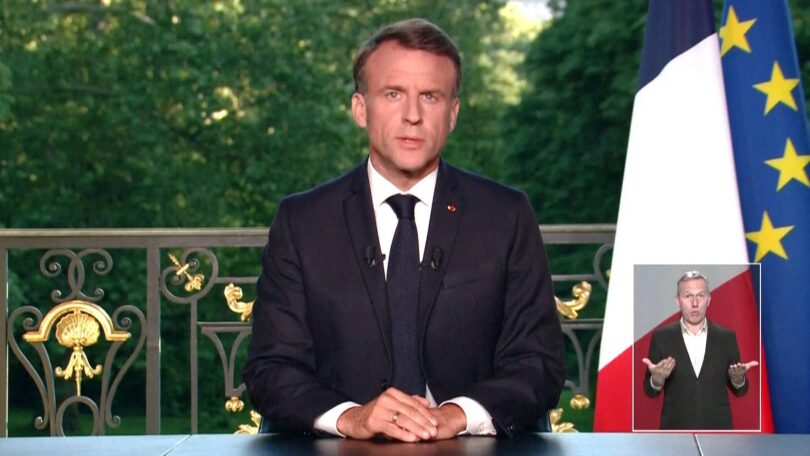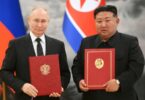French President Emmanuel Macron dissolved the National Assembly on Sunday, and called for a snap poll on June 30 (first round) and July 7 (second round). This was in response to the overwhelming performance of Marine Le Pen’s far right National Rally (RN) in the European Parliament elections over the weekend.
In a sombre televised message to the country, Macron said, “Far right parties are progressing everywhere in the continent. It is a situation to which I cannot resign myself.” He explained: “This is an essential time for clarification. I have heard your message, your concerns, and I will not leave them unanswered…France needs a clear majority to act in serenity and harmony.” Le Pen responded to Macron’s announcement saying, “We are ready to take over power if the French give us their trust in the upcoming national elections. We are ready to put the country back on the feet.”
The reaction to Macron’s shock decision has been critical. It is seen as a gamble which might even backfire. If the National Rally manages to win the national election, Macron, who is serving his second and last presidential term, will have to work with Jordan Bardella, the young leader of the far right party. Raphael Glucksmann, a writer, commentator and European lawmaker, called Macron’s decision “an extremely dangerous game with democracy and institutions.”
Valerie Pecresse, a former presidential candidate of the centre-right Les Republicains, said, “Dissolving without giving anyone time to organise and without any campaign is playing Russian roulette with the country’s destiny.” Jacques Reland of France’s Global Policy Institute describing Macron’s decision as a “gamble”, provides a perspective. He says, “The European election was used as a way for the French to vent…to say they are not satisfied on issues like immigration, cuts in unemployment benefits. But they recognise one thing about him (Macron) that on the international level, he puts across a good image of France and Europe.”
The French political scene, says Reland, is a “rampant political mess.” The traditional left-right division between the socialists and the conservatives has broken down. The French political left is broken into small factions of the communists, the Greens and the socialists. And the conservative centre has weakened, giving way to Macron’s new Renaissance party. It is in this situation that the far right National Rally, which has been waiting in the wings for decades and fine-tuning its extreme views from the days of Jean-Marie Le Pen to that of his daughter, Marine Le Pen, has been steadily gaining ground. Macron, who was dissatisfied with the country’s centrist parties and hence formed his own party, is no socialist. He is a pro-market leader, who wants to push France from its traditional niche of agriculture and industry to the new technology-driven economy of computers and communications. And he also has little sympathy for the welfare state. And he is keen that France should remain the leader of EU. And his futuristic vision has an edge over the back-to-good-old nationalist ways of the far right, whatever may be the momentary gains.
Macron is struggling to redefine France’s position at home as well as abroad. He is clear that far right parties like the National Rally are bad for France, for Europe. And he is looking for ways to keep the far right at bay. And he knows that it is important that an electoral pushback to the far right is the most convincing way to push them out of the national mainstream.
In many ways, Macron is also looking to shape his legacy for the country, of keeping France and Europe away from the political extreme of the left and the right.







